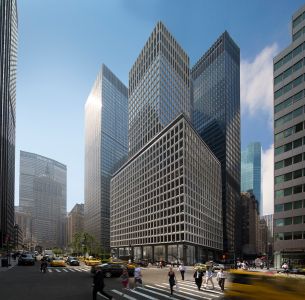A new report from Global Parking Association Leaders argues that parking around the world is becoming greener and more tech-savvy – but there’s still work to be done to reduce emissions.

The group, launched by U.S.-based International Parking Institute in 2012 and comprised of parking associations around the world, surveyed parking professionals from 21 countries regarding advances in parking.
“This is the first time parking associations around the world have collaborated to identify industry trends, and it is clear that we share many of the same challenges and opportunities,” said Shawn Conrad, executive director at IPI, in a statement. “Despite our many common issues, we see some interesting differences in countries’ priorities and circumstances, and I believe we will be able to learn much from each other.”
GPS, mobile phone technology, electronic payment, sensor space-monitoring systems, and a shift toward accommodating electric vehicles were listed among the most prevalent technologies being used, while survey respondents most often cited London (nine votes), San Francisco (seven votes), Amsterdam and Paris (five votes), and Barcelona, Seattle, and Tokyo (four votes) as being the most progressive about parking.
Respondents said the greatest environment benefit comes from on- and off-street guidance systems that enable drivers to find parking faster, reducing carbon emissions, followed by energy-efficient lighting and alternative travel, through bike storage, car and bike share, and access to mass transit.
While promising, the survey results point to a need to tap parking expertise earlier in the urban planning process to avoid later issues with economic development, transportation flow, congestion, and design, Mr. Conrad said.
Recent steps taken in New York City illustrate the growing desire to park vehicles more efficiently (or not drive at all). The success of the Citi bike-share program is the latest shining example of New York City’s push to reduce vehicle emissions, while the automated robot garage slated for Willoughby Square Park in Downtown Brooklyn illustrates the desire among groups to upgrade technology while reducing environmental impacts.
The next GPAL summit will be held in Dallas, Texas, June 1-4, 2014, at the annual IPI Conference & Expo.


